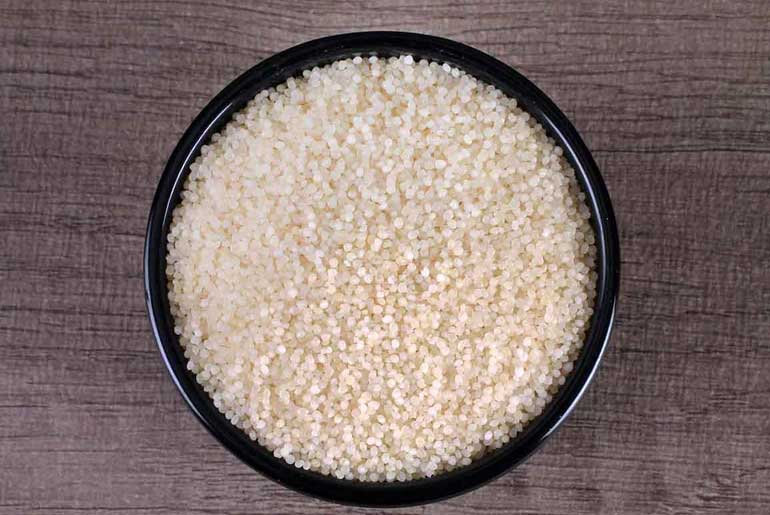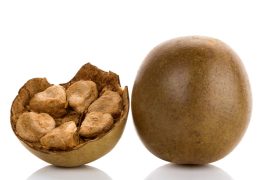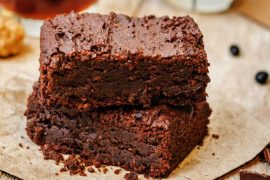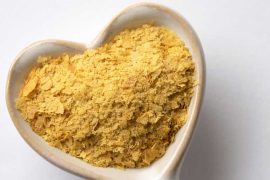Samak rice, or barnyard millet, is a nutritious grain popular in India and parts of Asia, known for its rich content of dietary fiber, protein, vitamins, and essential minerals. Gluten-free and low in calories, it aids digestion, supports weight management, and helps regulate blood sugar levels, making it suitable for diabetics. Commonly consumed during fasting periods in Hinduism, Samak rice can be cooked similarly to regular rice and used in various dishes, including upma and khichdi. Its versatility and health benefits make it a valuable addition to a balanced diet.
Samak rice, also known as barnyard millet or Samak (Echinochloa colona), is a nutritious grain that offers a variety of health benefits, particularly for its high protein and fiber content and its positive effects on bone health. Here’s a detailed overview of its benefits:
1. Rich Source of Protein
- High Protein Content: Samak rice contains a significant amount of protein compared to other grains. This makes it an excellent option for vegetarians and vegans looking to increase their protein intake.
- Muscle Building: The protein in Samak rice supports muscle repair and growth, making it a great addition to the diet for those engaging in physical activities or looking to build muscle.
2. High in Fiber
- Digestive Health: The high fiber content in Samak rice promotes healthy digestion by aiding in regular bowel movements and preventing constipation. Fiber helps maintain a healthy gut microbiome.
- Weight Management: Foods rich in fiber can help increase satiety, reducing overall calorie intake. This can be beneficial for weight management and preventing obesity.
- Blood Sugar Control: Fiber helps slow down the absorption of sugars, aiding in better blood sugar control, making Samak rice a suitable option for individuals with diabetes.
3. Excellent for Bone Health
- Mineral Content: Samak rice is a good source of essential minerals like calcium, magnesium, and phosphorus, which are crucial for maintaining strong bones and preventing conditions like osteoporosis.
- Bone Density: The nutrients in Samak rice contribute to improved bone density and strength, supporting overall skeletal health.
4. Rich in Antioxidants
- Antioxidant Properties: Samak rice contains antioxidants that help combat oxidative stress and inflammation in the body. This can contribute to overall health and reduce the risk of chronic diseases.
5. Gluten-Free
- Safe for Celiac Disease: Being naturally gluten-free, Samak rice is an excellent alternative for individuals with celiac disease or gluten sensitivity.
6. Low Glycemic Index
- Blood Sugar Regulation: Samak rice has a low glycemic index, making it a better option for those looking to maintain stable blood sugar levels. It helps in preventing spikes in blood sugar after meals.
7. Energy Boosting
- Complex Carbohydrates: The carbohydrates in Samak rice are complex, providing a steady release of energy, which can be beneficial for sustained physical activity and mental focus.
8. Versatile Culinary Uses
- Variety in Diet: Samak rice can be used in a variety of dishes, from traditional recipes like khichdi and upma to salads, soups, and desserts. This versatility makes it easy to incorporate into the diet.
9. Promotes Heart Health
- Heart-Friendly Nutrients: The fiber and antioxidant content can help lower cholesterol levels and improve heart health, reducing the risk of cardiovascular diseases.
How to Incorporate Samak Rice:
- Cooked Dishes: Use Samak rice in place of regular rice in pilafs, curries, or as a side dish.
- Salads: Mix cooked Samak rice into salads for added texture and nutrition.
- Soups and Stews: Add it to soups and stews for a nutritious boost.
- Porridge: Prepare a warm porridge with Samak rice, milk, and fruits for breakfast.
Samak rice is a nutritious grain that provides numerous health benefits, particularly due to its rich protein and fiber content, as well as its positive effects on bone health. Its versatility in cooking makes it an excellent addition to a balanced diet, supporting overall health and well-being.
Disclaimer:
The information contained in this article is for educational and informational purposes only and is not intended as a health advice. We would ask you to consult a qualified professional or medical expert to gain additional knowledge before you choose to consume any product or perform any exercise.







